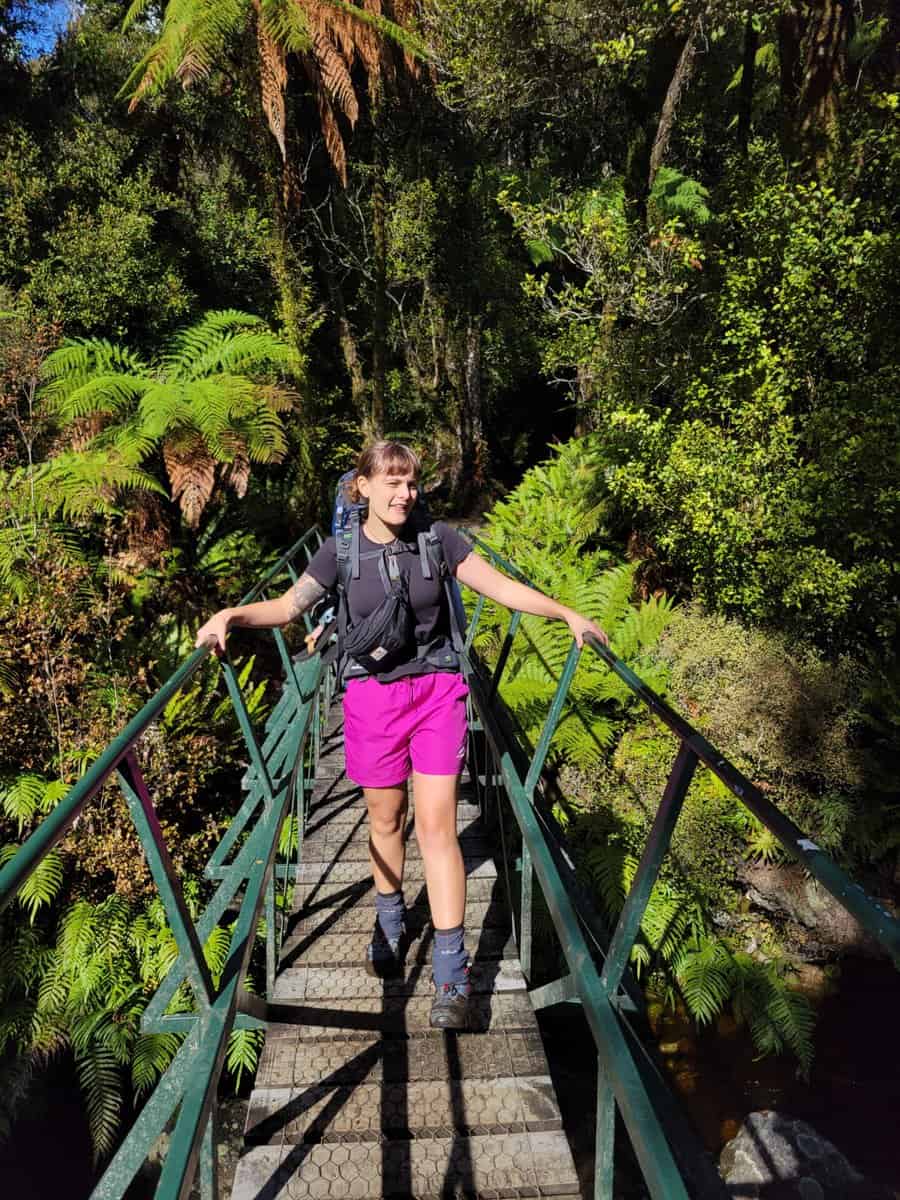
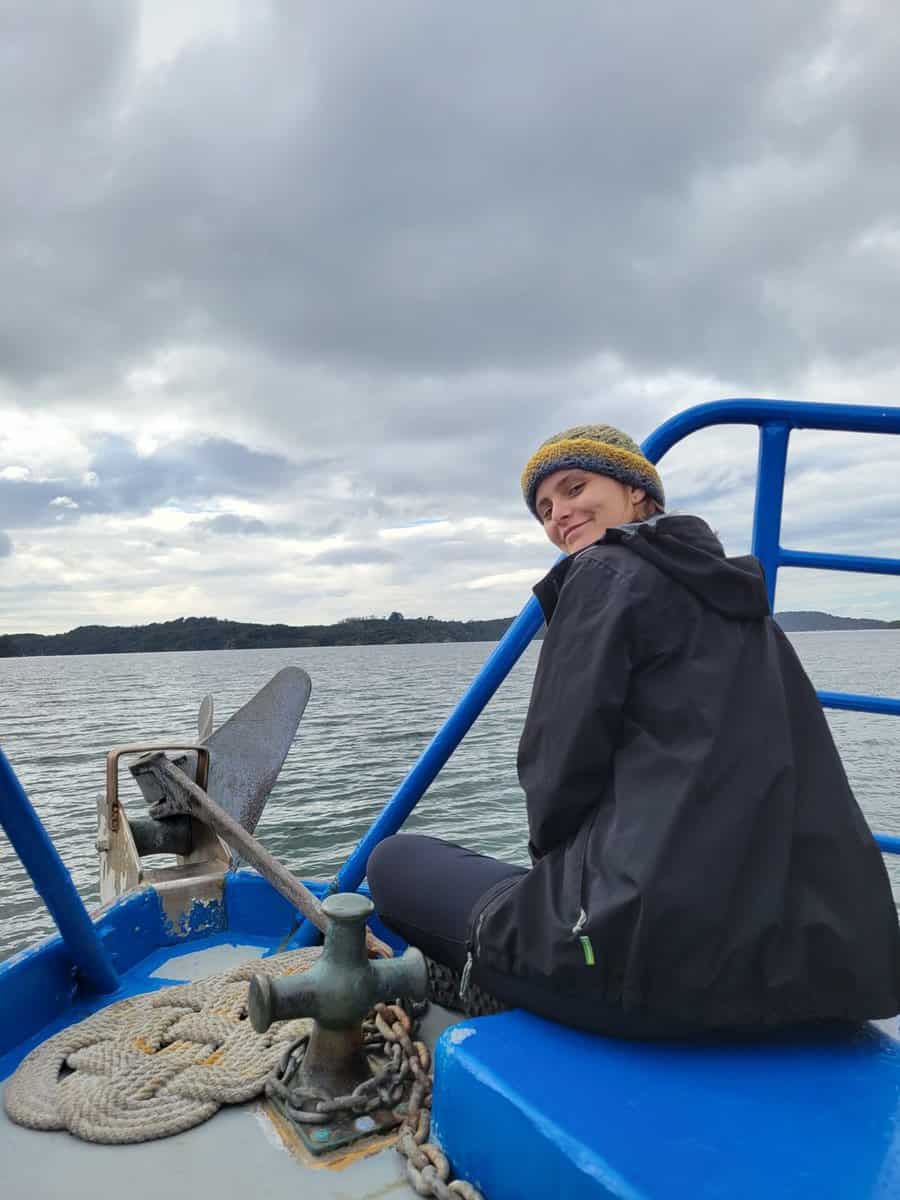
For Maisie, one of the most rewarding parts of her trip was the flight itself. Flying aboard a smaller aircraft afforded her and her partner breath-taking views from the take-off in Waihōpai (Invercargill), to their landing on Rakiura.
“Being at the lower elevation was a cool experience. I’m sitting up in this tiny plane trying to ID the trees,” says Maisie, laughing.
She also credits the nine-passenger Britten Norman Islander with giving her a new perspective on aviation. “Sitting up the front with the pilot, seeing the mechanisms of the plane itself, and understanding how it was being flown – it was really amazing,” she says. Maisie and her partner visited Te Wharawhara (Ulva Island) on their first full day, before going on a three-day hike. Having previously visited Tiritiri Matangi Island, it wasn’t Maisie’s first time seeing tīeke (saddleback) in the wild, but it was a different experience on Te Wharawhara, with the birds abundant and playful, and appearing noticeably fatter: “You step two metres into the bush and you’ve got three tīeke jumping all around you and South Island korimako hanging from the branches”, she says. “It’s very inspirational to see what we can work towards,” says Maisie, who, having completed her Master’s degree, now works in ecological restoration.
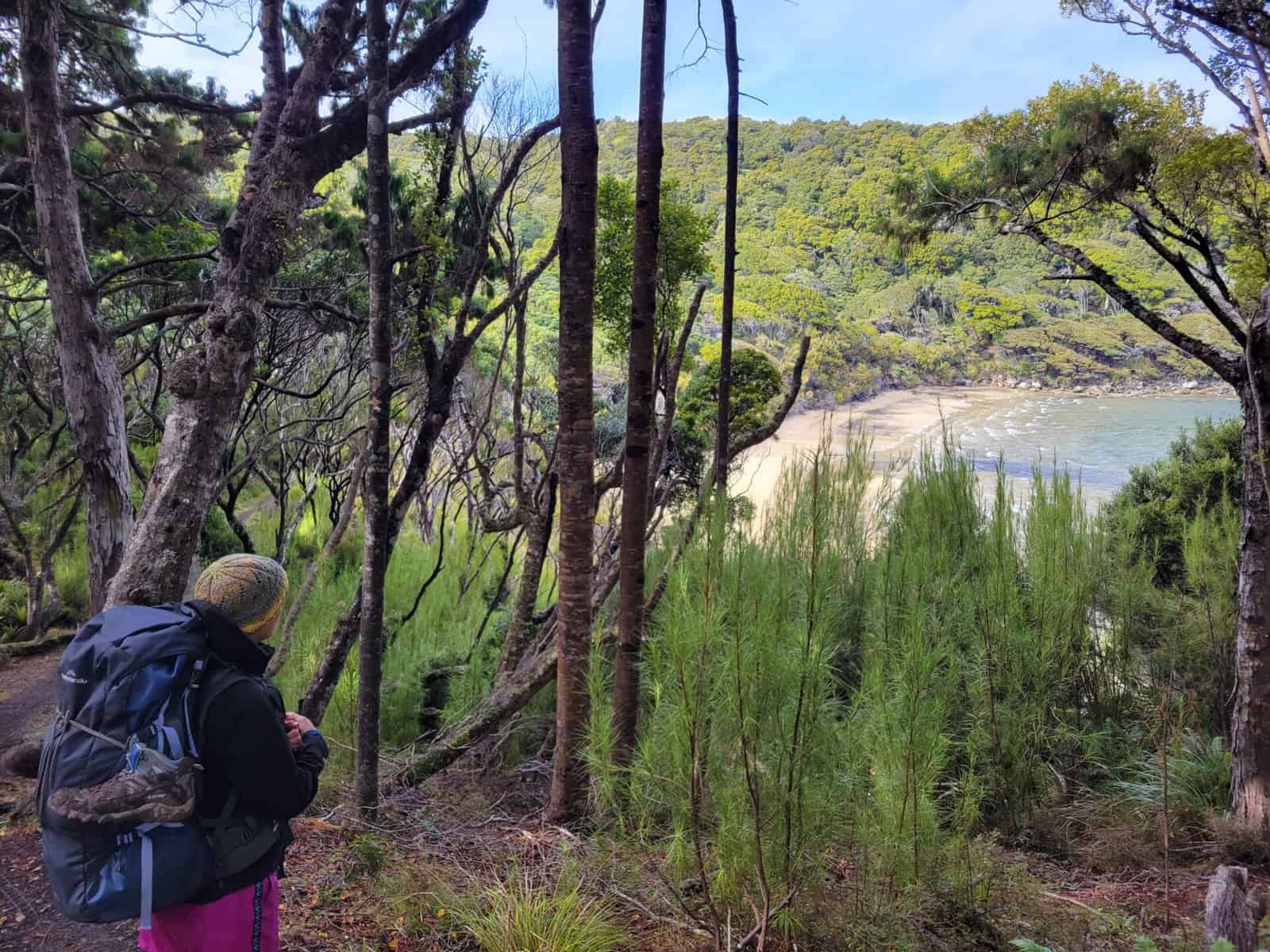
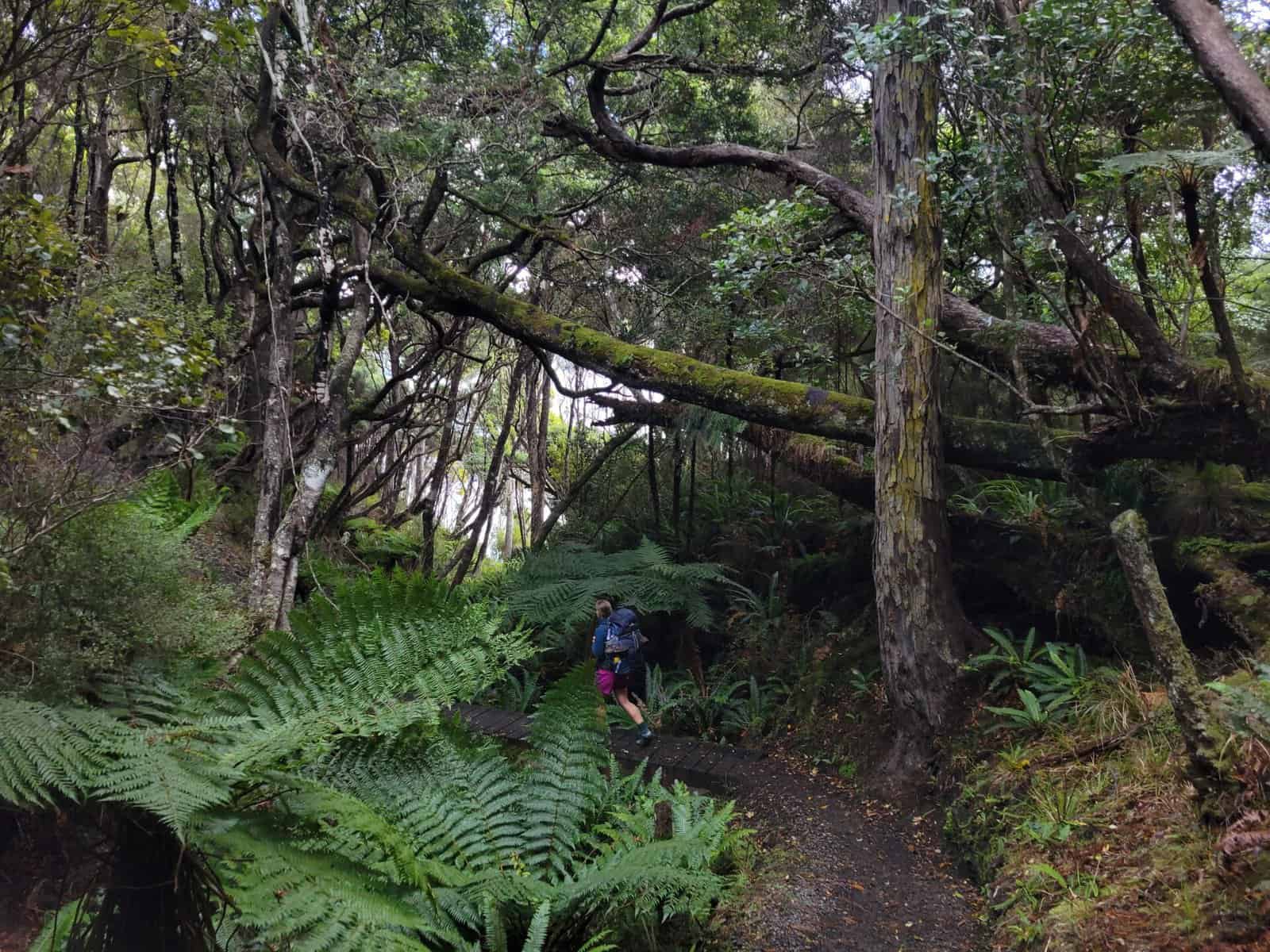
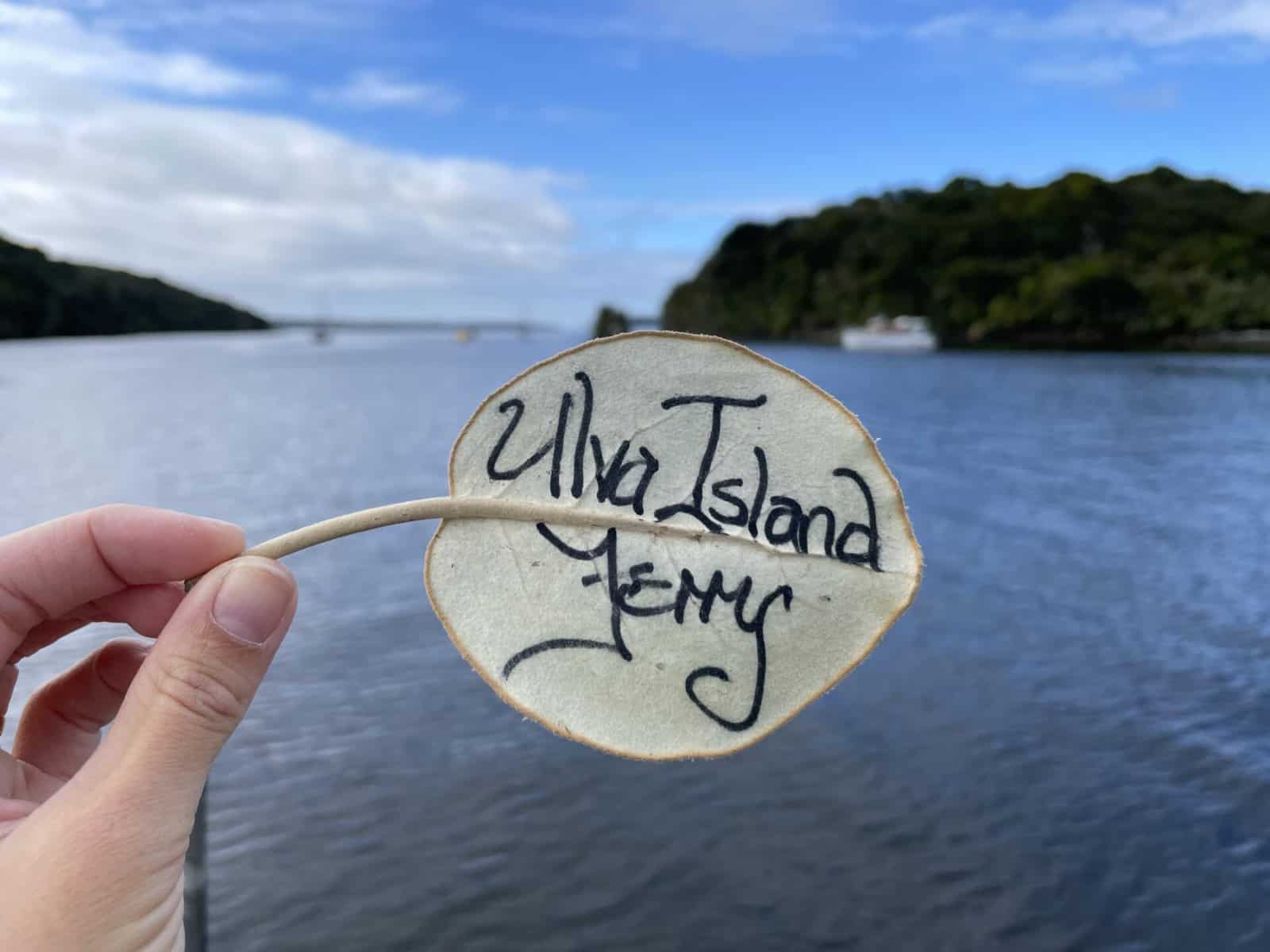
Maisie was working on her Master’s project at the University of Auckland when she won the trip to Rakiura at Crazy & Ambitious 3. Her project was titled ‘Effects of the soil-borne pathogen Phytophthora agathidicida on the kauri (Agathis australis) phyllosphere’ and was part of Ngā Rākau Taketake’s Risk Assessment & Ecosystem Impacts research theme.
Today she is the Kauri Protection Campaign Coordinator at Pest Free Kaipātiki, a role that encompasses community education, resourcing and training. Reflecting on what it means to spend recreational time amid nature (in particular, ecologically significant biomes such as Te Wharawhara), Maisie comes back to something she’s touched on throughout our interview: a sense of purpose.
“Being out in the bush is very grounding for me,” says Maisie. “It reminds me of why I do the work I do. It gives me purpose.”
This was Maisie’s first trip to Rakiura and she came away with a kete full of memories: from the warm welcomes extended to her from the people of Rakiura, to the ecological treasures of the island itself.
“It gave me that sense of wonder again,” she says.
“I hadn’t made it to Rakiura before, now I’m like ‘when can I go back’! I would 130% encourage others to make the trip down there. It’s wonderful.”
Listen to Maisie’s presentation on her mahi at the Kaurilands Summit 2023 by clicking here.
Written by Kerry Donovan Brown, all images thanks to Maisie Hamilton Murray
June 2023